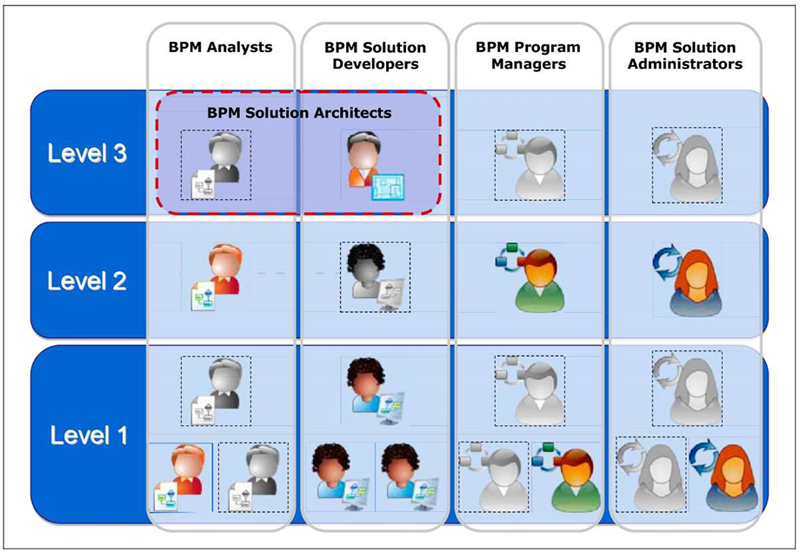Preface
Before planning a BPM project or establishing a program, it is important to understand the roles associated with process discovery, development, deployment, and continuous improvement. The quantity and utilization of these roles in our organization differ based on process complexity and size. As processes get larger and more complex, you need more seasoned and experienced staff to successfully implement and manage project delivery. You already have a group of talented individuals that have a mixture of analytical, development, and management experience and who are interested in participating in BPM projects.
This section explains the responsibilities and skills needed for delivering a process and how to empower your team to fulfill the roles required in BPM. As individuals gain experience and achieve success with BPM, you recognize the maturing skill sets and growing responsibilities that we identify with certification levels (Level 1, 2, and 3) described for each role (Fig. 2.2.2/1). Skills development must be planned and is role-specific. Sufficient skills development improves BPM adoption, achieves incremental business value, and ensures BPM Project/program success.

Creating a culture of ‘we’
Developing a we culture is important because BPM projects are highly collaborative with shared work involving several different roles. The roles described are not specific to IT or business.
Although some roles are typically filled by persons with specific IT or business background, there is less stickiness in IT or business in the nature of their work, who they talk to, and the tools they use. For example, it is common for a Process Owner or Subject Matter Expert (SME) (lead process participant) to collaborate with a BPM Solution Administrator to plan and carry out the deployment of a new version of a process application. Each role contributes to the conversation and uses the Process Admin console. Although separation of duty is achieved through configuration and governance within the Process Center, such separation is not achieved through boundaries across roles and the tools in the traditional sense in which your staff are accustomed.
Encouraging cross-pollination of skill sets
Some individuals seek skills development and an interest to perform the functions of BPM roles outside of their current job title or assignment. Such lateral and vertical movement, and overlap of skills, should be encouraged in your organization.
